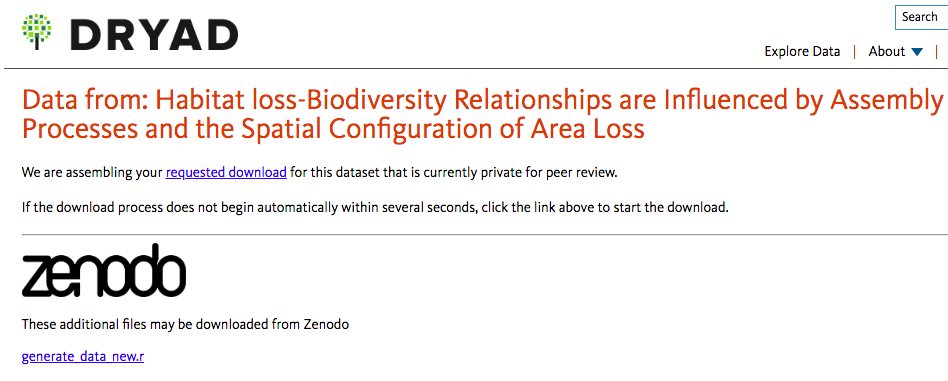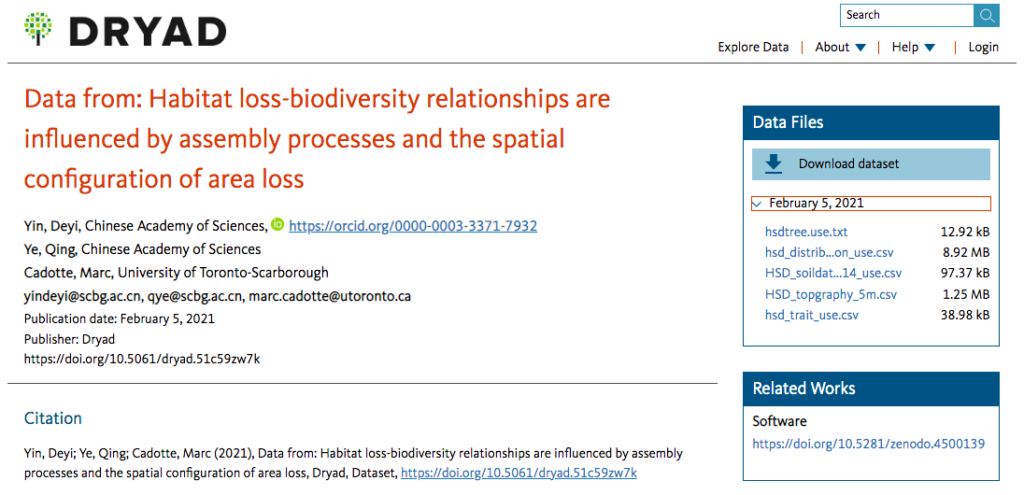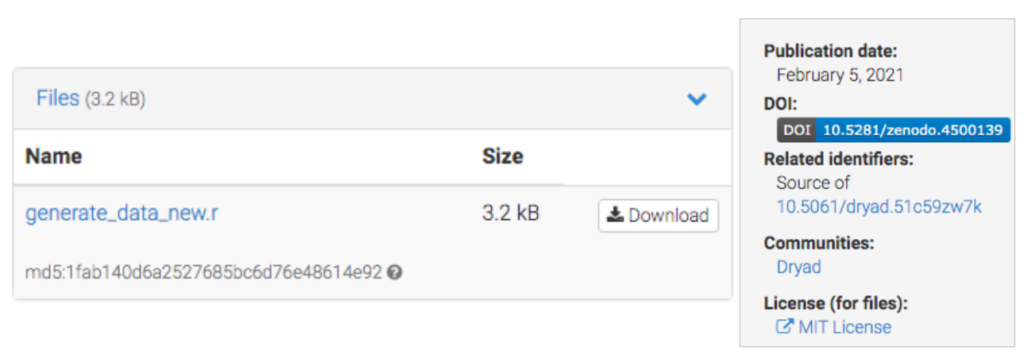Researchers at UC and around the world now have access to streamlined workflows for publishing their research data and software – and linking the two – through Dryad and Zenodo.
UC campuses and California Digital Library have long invested in open data initiatives and support for data publishing. In 2018, CDL partnered with Dryad, an open access data publishing platform. Dryad, founded by researchers and closely connected to and recommended by journals and funders, has been around for over a decade and has long been supported across the globe. While Dryad’s partnership with CDL has allowed for a seamless and free option for UC researchers (and researchers more broadly) to have their data curated, published, and archived, it has been clear that we need to also provide proper support for research code and software.
In 2019, Dryad partnered with Zenodo, an open access repository based out of CERN. Zenodo has similarly long served global scientific researchers as an open source space for all research-outputs. While Dryad’s emphasis has been curated research data, Zenodo has focused on code and software publishing. Leveraging each other’s strengths, our teams found that working together we could more effectively support best practices and policies in research and software publishing.
We have now launched our first set of features to support new models in open data and software publishing, making it easier for researchers to follow best practices in data curation and software citation.
The post below was originally published on the Dryad news and views blog on February 8, 2021.
The Dryad and Zenodo teams are proud to announce the launch of our first formal integration. As we’ve noted over the last years, we believe that the best way to support the broad scientific community in publishing their outputs is to leverage each other’s strengths and build together. Our plan has always been to find ways to seamlessly connect software publishing and data curation in ways that are both easy enough that the features will be used but also beneficial to the researchers re-using and building on scientific discoveries. This month, we’ve released our first set of features to support exactly that.
Uploading to Zenodo Through Dryad
Researchers submitting data for curation and publication at Dryad will now have the option to upload code, scripts, and software packages on a new tab “Upload Software”. Anything uploaded here will be sent directly to Zenodo. Researchers will also have the opportunity to select the proper license for their software, as opposed to Dryad’s CC0 license.

Those familiar with Dryad may know that Dryad has a feature to keep datasets private during the peer review period, with a double blind download URL that allows for journal offices and collaborators to access the data prior to manuscript acceptance. Zenodo hosted software will be included in this private URL and will be held from the public until the dataset is ready to be published.


After curation and publication of the dataset, the Dryad and Zenodo outputs are linked publicly on each landing page and indexed with DataCite metadata. Versioning and updating of either package can happen at any time through the Dryad interface.


Elevating Software
Throughout our building together, we worked with researchers across scientific disciplines to both test the look and feel of the features but also to understand how data and software are used together. Through conversations with folks at Software Sustainability Institute (SSI), rOpenSci, Research Software Alliance (ReSA), US Research Software Sustainability Institute (URSSI) and leaders in the software citation space, we understood that while researchers may not always think of their R or Python scripts as a piece of software, integrations like this are essential to elevate software as a valued, published, and citable output.
“This work between the organizations represents a massive win for open science and reproducibility. Besides the lack of incentives to share, a significant source of friction for researchers is the burden of preparing research artifacts for different repositories. By simplifying this process and linking research objects, Dryad and Zenodo are not only making it easier to share code and software, but also dramatically enhancing discoverability and improving data and software citation.”
– Karthik Ram, Director of rOpenSci & URSSI lead
Looking Forward
This release is the first set of features in our path ahead working together to best support our global researcher base. While we are building feature sets around Supporting Information (non-software and non-data files) for journal publishers, we know that this space is evolving quickly and our partnership will respond to both the needs of researchers as well as the development of best practices from software and data initiatives. We will keep the community apprised of our future developments and we are always looking to expand our reach and iterate on what we’ve built. If you believe there are ways that Dryad and Zenodo better support research data and software publishing, please get in touch.
Tags: CDL, Data, Dryad, OA Innovations @ UC



